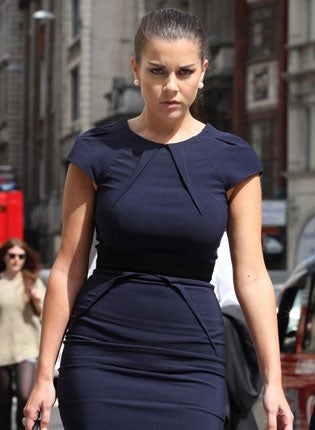30,000 Twitter users could face legal action over gag breaches

Your support helps us to tell the story
From reproductive rights to climate change to Big Tech, The Independent is on the ground when the story is developing. Whether it's investigating the financials of Elon Musk's pro-Trump PAC or producing our latest documentary, 'The A Word', which shines a light on the American women fighting for reproductive rights, we know how important it is to parse out the facts from the messaging.
At such a critical moment in US history, we need reporters on the ground. Your donation allows us to keep sending journalists to speak to both sides of the story.
The Independent is trusted by Americans across the entire political spectrum. And unlike many other quality news outlets, we choose not to lock Americans out of our reporting and analysis with paywalls. We believe quality journalism should be available to everyone, paid for by those who can afford it.
Your support makes all the difference.The attempt to use super-injunctions to gag the media in the internet age reached new levels of absurdity yesterday.
A Scottish newspaper became the first mainstream British publication to identify the Premier League footballer who is attempting to prevent discussion on Twitter about his affair with the former Big Brother star Imogen Thomas. Meanwhile it was reported that a High Court judge had referred an unidentified journalist to the Attorney General, Dominic Grieve, to consider a criminal prosecution for breaching a privacy injunction with a tweet about another footballer.
The move could potentially mean that criminal proceedings would be brought against 30,000 people who have broken one or other of the contested injunctions by tweeting in recent days the identities of those involved.
Yet on a day when the increasingly farcical attempts of lawyers to restrict the flow of information about their clients unravelled further, a Scottish newspaper devoted its front page to a clearly recognisable photo of one of the footballers involved. Below the picture, a caption read: "Everyone knows that this is the footballer accused of using the courts to keep allegations of a sexual affair secret. But we weren't supposed to tell you that..."
The Scottish paper's editor said he printed the picture because he did not think it was bound by the English legal injunction. However, the paper did not name the footballer in its two-page spread on privacy, and Scottish lawyers questioned whether it would be able to defend its decision in court.
"My understanding is that the injunction is not in force in Scotland," said the editor. "For it to be so, there would have been a separate application in a Scottish court. It seemed that printing the picture would help the situation we are still in and spark a debate to find a solution to it."
However Campbell Deane, of the leading Scottish libel firm Bannatyne Kirkwood France & Co, said he believed the paper was covered by the injunction and could now be referred to the Lord Advocate, who could bring charges against the paper's editor and its owners.
Mr Deane said that the 1991 ruling by the House of Lords in relation to publication of extracts by the Sunday Times of former MI5 officer Peter Wright's autobiography, Spycatcher, meant newspapers could be in contempt of an English court if they were aware of an injunction – even if they were not specifically covered by it.
Meanwhile in England, the Attorney General's Office (AGO) was attempting to establish whether or not a request had been made by the High Court judge Mr Justice Tugendhat for the AGO to consider whether to issue criminal contempt proceedings against a journalist who broke the terms of an earlier injunction on Twitter by naming the footballer and making several other derogatory comments about him. That led to a flurry of other tweets naming both footballers – which by last night had risen to over 30,000. These included several high-profile users. One said: "Do Schillings [the law firm representing the footballers] plan to jail all 30,000+ Twitterers who have breached the super-injunction?"
However, sources close to the Attorney General suggested he would be highly unlikely to authorise criminal proceedings against anyone who had breached either injunction on Twitter. They said that Mr Grieve – who is a politician – would be unlikely to want to become embroiled in an increasingly farcical situation and suggested that if the footballers' lawyers wanted redress against tweeters, they should do it through the civil courts.
"Frankly this is not something we want anything to do with," they said. "At the moment we have not seen any request to consider criminal contempt proceedings but I imagine if we do they will get pretty short shrift."
In a statement Mr Grieve's office said: "As with all referrals, the Attorney General will consider the matter carefully, and take action if necessary."
Lawyers representing the two footballers declined to comment on the issue yesterday.
Join our commenting forum
Join thought-provoking conversations, follow other Independent readers and see their replies
Comments